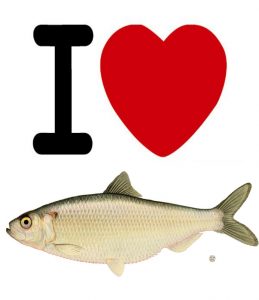 A recent encounter suggested that I watch the 2mns videos of Rabbi Dr Abraham Twerski On Love after reading my post on Marx, Nietzsche and Freud.
A recent encounter suggested that I watch the 2mns videos of Rabbi Dr Abraham Twerski On Love after reading my post on Marx, Nietzsche and Freud.
‘Sorry, who?’ was my initial reaction. My second was to Google his recommendation and watch the video. It was worth a watch, so much so I decided to share it with you along with my first reactions and thoughts on the video below.
Rabbi Dr Abraham Twerski first introduced the concept of fish-love – yes, you read right, fish-love. Here is a transcript of his talk:
 “Love is a word that, in our culture, has almost lost its meaning. Let me tell you a story about the Rabi of Kursk. He came across a young man who was clearly enjoying a dish of fish that he was eating, and he said: ‘Young man, why are you eating that fish?’. And the young man says ‘because I love fish!’. He says: ‘Oh you love the fish, that’s why you took it out of the water and killed it and boiled it.’ He said ‘don’t tell me you love the fish; you love yourself, and because the fish taste good to you, therefore you took it out of the water and killed it and boiled it.’
“Love is a word that, in our culture, has almost lost its meaning. Let me tell you a story about the Rabi of Kursk. He came across a young man who was clearly enjoying a dish of fish that he was eating, and he said: ‘Young man, why are you eating that fish?’. And the young man says ‘because I love fish!’. He says: ‘Oh you love the fish, that’s why you took it out of the water and killed it and boiled it.’ He said ‘don’t tell me you love the fish; you love yourself, and because the fish taste good to you, therefore you took it out of the water and killed it and boiled it.’
So much of what is love is fish-love.”
 This defines so well what is selfish love, based on what you get from the person loved – or supposedly so. It is common, usually unconscious, and more often than not toxic. And it is not limited to young love and couples, it affects any type of relationship and at any age: children, elderly, friends, anyone can apply selfish love to the recipient of their attention. The selfish lover will say ‘I love you’ to hear ‘I love you’ in return, he will talk about love to get love. Selfish love is wanting to be with someone because of how they make you feel. It engages conditions and expectations.
This defines so well what is selfish love, based on what you get from the person loved – or supposedly so. It is common, usually unconscious, and more often than not toxic. And it is not limited to young love and couples, it affects any type of relationship and at any age: children, elderly, friends, anyone can apply selfish love to the recipient of their attention. The selfish lover will say ‘I love you’ to hear ‘I love you’ in return, he will talk about love to get love. Selfish love is wanting to be with someone because of how they make you feel. It engages conditions and expectations.
In the opposite, selfless love is based on what you give to the person loved – attention, support, love – with the only aim to make that person happy. Selfless love is wanting someone to be happy regardless of their feelings towards you. It is unconditional.
“And so, a young couple falls in love, a young man and a young woman fall in love, what does that mean? That means that he saw in this woman someone who provide him with all that physical emotions and needs, and she saw in this man somebody she feels that she can wed, and that was love; but each one is looking after their own needs. It is not love for the other, the other person becomes a vehicle for their gratification. Too much of what is called love is fish-love.”
 So, really, fish-love is ‘loving’ someone because they satisfy a need.
So, really, fish-love is ‘loving’ someone because they satisfy a need.
But hang on a second! Is selfish love really love? Maybe part of it is, maybe they just don’t know how to give love because of insecurity, immaturity, or… selfishness. Still, for the recipient of this ‘fish-love’, it can be very hard and unrewarding, especially if they love truly, deeply, selflessly. Can a selfless lover and a selfish lover complete each other? Not in my view, to give love incessantly and never receive it, the first one will end up depleted.
On the other hand, if the other lover is also a ‘fish-lover’, then maybe between two fish-lovers the relationship will work, as long as they are happy with a superficial love.
 “An external love is not what I am going to get but what I am going to give. We had a Rabi that said that people make a serious mistake in thinking that you give to those whom you love, and the answer is, the real answer is, that you love those to whom you give. And his point is, if I give something to you, I have invested myself in you, and since self-love is a given – everybody loves themselves – now that part of me is becoming you, there is part of me in you that I love.
“An external love is not what I am going to get but what I am going to give. We had a Rabi that said that people make a serious mistake in thinking that you give to those whom you love, and the answer is, the real answer is, that you love those to whom you give. And his point is, if I give something to you, I have invested myself in you, and since self-love is a given – everybody loves themselves – now that part of me is becoming you, there is part of me in you that I love.
So truer love is a love of giving, not a love of receiving.”

Now, that part of the talk left me slightly uncomfortable. First of all, I do not believe that everybody loves themselves. To the contrary, the insecurity and need within the fish-love shows that there is a hole within that person and a search of an eternal element to fill it. Also, to say that ‘now that part of me is becoming you, there is part of me in you that I love’, isn’t it fish-love too? It could translate that I love you for the part in me I have invested in you. I would much rather be loved for who I am as a whole, thank you very much! No, I much prefer to believe that you give to those you love because you want them to have the best.
To conclude, I like the concept of fish-love as a synonymous of selfish love. I also think that aside from selfish love and selfless love, it is important to mention self-love. Everyone needs some self-love to protect themselves again someone with fish-love. Indeed, selfless love is an amazing quality, yet it can also be used and abused if directed to the wrong person. In that case, self-love is key to set the boundaries.
 In the end, I agree that ‘So truer love is a love of giving, not a love of receiving’. However, I also believe that to love someone is also to love being loved by this person, and thus to receive from this person. When receiving, you open your arms and let someone in. This is not always easy. So, for me, truer love would be to give to and to be open to receive from the ones you love.
In the end, I agree that ‘So truer love is a love of giving, not a love of receiving’. However, I also believe that to love someone is also to love being loved by this person, and thus to receive from this person. When receiving, you open your arms and let someone in. This is not always easy. So, for me, truer love would be to give to and to be open to receive from the ones you love.Thank you for reading,
Virginie